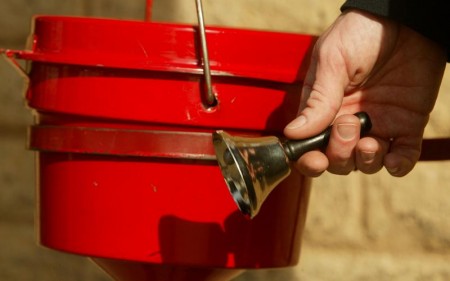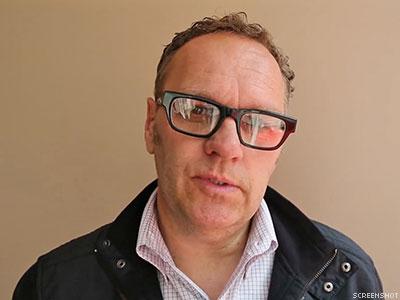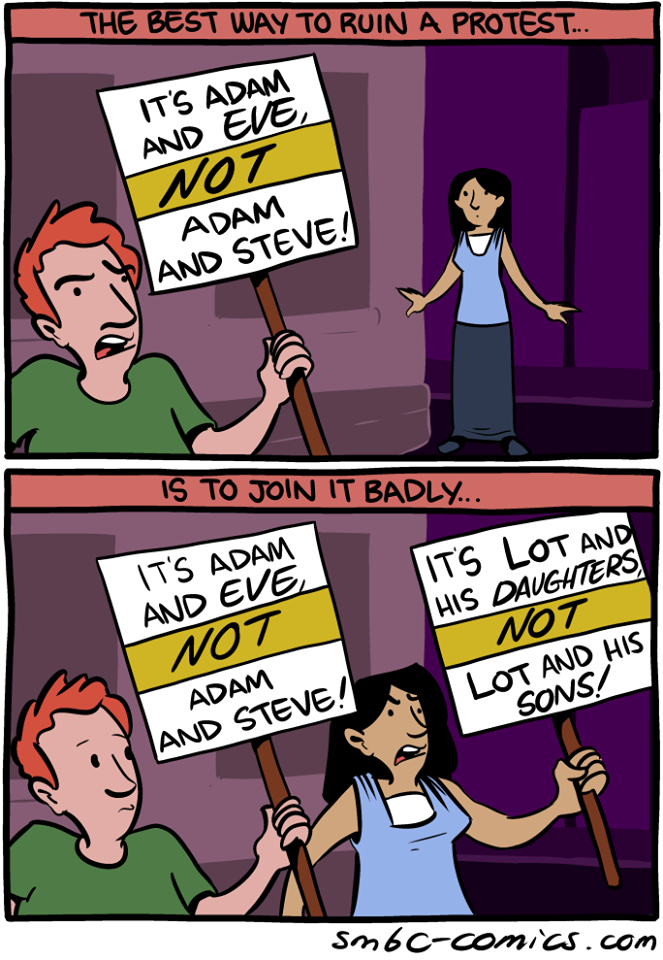By Ben Brenkert
Today, at 35, I am a gay seminarian who still needs human touch. For me the best place is the Episcopal Church. Some day I will be a priest, hopefully married with children. That’s what I’m looking for, love; it falls under the rubric of modern love. I am a modern gay Christian in search of love, one who still wants to become a priest.
From 2004 to 2014 I was a Jesuit, a member of the Society of Jesus in good standing, an order gone global by the election of Pope Francis I. I left the Jesuits because I left the Roman Catholic Church. I would not be an openly gay priest in a Church that fires LGBTQ employees and volunteers. I left in protest: How could I be an openly gay priest who fires LGBTQ employees and volunteers?
Here’s my story; it is an experiment with truth telling, as much as it is about justice for LGBTQ Christians and non-Christians, men, women and children who have been deeply affected by the millennia of anti-gay theology and hate speech espoused by the Roman Catholic Church. The effects of this violence linger today.
My story takes on closeted gay priests, Jesuits or not, and tells them to come out. My story ends by radically calling upon Pope Francis I and his brother Jesuits, indeed anyone who has fired an LGBTQ employee or volunteer, to reinstate them today.
Since I was a teenager, 15 years old, I longed to be a priest as seriously as others dream of a vocation or a career: to become a doctor, a teacher, a writer. Just because I was gay, I felt it was no reason for me not to pursue my dream.
I grew up in Valley Stream, a suburban village on Long Island, the son of an FDNY fire inspector and a mom that worked for Nassau Downs Off Track Betting. More than anything else we were a Roman Catholic family who ordered our lives around the life of the Church, as much as we did big Italian meals and Broadway shows.
Mine was a decent childhood, but at home I could never fully be myself, the Church’s teaching on homosexuality burdened any genuine relationship between my parents and me and my four siblings and me. This is still true today.
In 2002, at 22, after seven years of happily discerning a call to become a Roman Catholic priest, I almost threw in the towel. I’d had enough dinner meetings with bishops and priests from the Diocese of Long Island and the Society of Mary (the Marists) to know that I could not be an openly gay man in their course of study. No one ever spoke to me about the subject of sex or sexuality: This drew enough red flags for me.
“I’ll never ever go back into the closet. I’ll never again be a scapegoat for anyone’s war with culture, not nature.”
Still desiring to be a priest, I prayed for guidance and remembered two Jesuit priests, Fathers Mateo Ricci and Walter Ciszek, members of the Society of Jesus (the Jesuits), members of what I would quickly learn was the largest, most progressive and gay-friendly religious order in the Church.
Both Frs. Ricci and Ciszek were missionaries who responded to God and served the Church in Asia; both were formed according to the spirituality of Saint Ignatius of Loyola, the Basque nobleman who founded the order in 1540. Loyola set his men apart from other religious orders by giving them the tools to mix in with the upper classes at universities or in courts, but bound them also to serve the poor and least among us, children. In these men I saw myself.
As I discerned entry into the Jesuits, many close friends debated me about homosexuality and Catholicism, essentially questioning my calling. My friend Katie asked me how I could dedicate my life to an institution that labeled me as intrinsically disordered, one who saw gay sexual acts are evil.
But I saw homosexuality and Catholicism in the most holistic way, and I put my needs for self-preservation last because I wanted to make a difference in the life of LGBTQ youth. I thought I could change things from the inside, but to do this right I had to enter the Church’s most gay friendly order, an order with political and social connections that rivaled the Beltway.
Even then I knew it would take years and years to undo the damage done to the LGBTQ community by the Church, damage I hoped to help repair in my lifetime as a priest.
I too wanted to help people, especially gay people like myself, who belong to a church that doesn’t accept them. I knew Catholicism was anti-gay (just read the Catechism of the Catholic Church), but soon enough the gay Jesuits I’d meet rejected the prevailing ethos on that. But I was naïve, too idealistic and pious, sold a bill of goods when I didn’t realize how big the rock was that I’d be pushing up the mountain. I entered the Jesuits in 2005 at the age of 25.
In 2006, at 26, we Jesuit novices studied together in Denver. During this summer gay Jesuits met periodically, in secret to discuss the lack of hospitality and welcome by our straight brothers. Many spoke about how this led them into the dark night of the soul, to what some interpreted as an unhealthy uses of pornography, when what they really wanted was genuine human connection.
Of course, using porn contradicted one’s vow of chastity. One immature novice said that for him gay porn was but one means to keep his “gay self” alive and still connected to a community so often alienated by the Church; for me, he was erroneously projecting his own sense of isolation and alienation by the Church onto the gay porn industry.
In those secret meetings we discussed why it was OK for our straight brothers to make crude jokes about women during dinner while we could not discuss ex-boyfriends or what it meant to be healthy, chaste gay man. Our callings we opined were from God irrespective of our sexual orientation.
We discussed how often we succumb to our natural feelings through masturbation, which some of our novice directors tried to teach us to control. We felt we could live our vows of poverty, chastity, and obedience just as authentically as our straight brothers.
That summer E.S., a youngish, blue-eyed, piano-playing boy from Massachusetts and I had an affair that lasted several weeks. We never had sexual intercourse, but we did just about everything else. As I professed vows my voice quavered. What was I doing? Why was I, a healthy integrated gay man, choosing life in a hostile environment, self-selecting, and freely responding to a vocation in a church that practices “don’t ask, don’t tell” through the imprudent guise of hate the sin, love the sinner?
But God had called me, and before I knew it I was, at 27, on my way to St. Louis for further training. In St. Louis I learned firsthand about the secret, scandalous world of gay Jesuits.
While in St. Louis I met a fraternity of men just out of similar novitiates, whose newfound freedom led them to gay or straight bars, but also to “the 4th house” where we would all gather for libations and pizzas. I was shocked by how much drinking went on that first year. I was more shocked by the stories I’d hear of younger Jesuits fathering babies, and gay Jesuits fondling each other in vans on the way to retreats.
These men were gay Jesuits whom the Church and the Society of Jesus embraced, gay men who according to the church’s teaching were still objectively disordered, intrinsically deviant from the natural world and social order.
Was the Society of Jesus doing us, or the LGBTQ community, any favors by keeping us?
While in St. Louis I was told by my superiors not to write about LGBTQ issues, that such a commitment to social justice, while helpful, would draw red flags and possibly delay my ordination to the priesthood. Outside the classroom I had other things to worry about. I inherited the unhealthy sexual appetite of a young Jesuit who entered religious life right after high school.
M.B. was a strikingly attractive young Polish man from St. Louis whose sexual appetite was rapacious, and whose attraction to me never ceased. With time his advances grew more aggressive. We spent a weekend at a vacation home in Green Hills, when M.B. asked me to sleep with him.
During that weekend M.B. told me about at least one affair with another Jesuit, M.P. Later, when M.B. suggested we have a threesome I knew that our own sexual intimacy in the basement of the “4th house” had stirred his addiction to sex, and to me.
Before long we were skipping meals and paper writing and finding our usual spot on the campus of St. Louis University to embrace, and kiss and dry hump. He told me his nickname for his penis, “the Amazon.”
Once when I told my acting superior Fr. S. about M.B.’s advances he shrugged his shoulders and said, “Why resist? To him you’re so exotic.” I surmised that I was exotic because of my good looks and charm, but was that an excuse to break my vows and give in to M.B.’s aggressive advances?
As I left St. Louis, in 2010 at the age of 30, to work in our Jesuit prep school in New Jersey, I more and more decried my inability to work for LGBTQ justice and equality. To do so I had to talk about civil rights and the experience of African Americans at the expense of talking about issues relevant to the LGBTQ community.
I could talk about racism but not homophobia. I could mix in with African-American students, but be reprimanded when I worked too closely with Breaking Barriers, the school’s “gay-straight alliance.”
Every time I heard a prep student use the term “faggot,” or counseled a gay student bullied by his peers, I thought of James Baldwin’s essay, ‘Stranger In The Village,’ (PDF) where he writes, “The children who shout ‘Neger!’ have no way of knowing the echoes this sound raises in me.”
Recently, a married lesbian former colleague chided me, “Why didn’t you do more when you were with us?” My answer: to work from within I had to play the game. That answer was not sufficient: Was I a coward? No, I don’t think so. To do something I needed to be ordained, I wasn’t there yet. Over time I grew tired of waiting for ordination.
About the secret world of gay Jesuits: I could go on and on about gay Jesuits playing the piano in the West Village’s Duplex or about the nights I spent at NYC’s Splash Bar or Eagle Club. I could talk about how older gay Jesuits swam nude during summers at villa homes, about Jesuits who groped each other in hot tubs, or Jesuits who were gay in the order but who are now safely married. I could talk about gay Jesuits that had online Avatars and memberships to gay online dating sites. I could talk about failed Jesuit hook-ups, my own and others.
There were the gay Jesuits who were so closeted that they hid behind conservatism, leaving the Jesuits for formation programs in dioceses across the United States. There were gay Jesuits who were put in clerical prison for embracing undergrads too long, and others who attended Sexaholics Anonymous, or whose personal collection of pornography was mistakenly played during high school lectures.
I myself was groomed for sex by several older Jesuits. I saw the vehement internalized homophobia of some Jesuits, and knew of certain gay pastors removed from jobs so that less out and more passable gay Jesuits replace them at gay-friendly parishes.
There were gay Jesuits who traveled the world to scuba dive or taste French wine. One gay Jesuit offered to marry me as I departed the Society of Jesus. I lament that these gay Jesuits remain silent while their gay or lesbian lay colleagues are fired from jobs and brought closer to poverty.
At 35, I continue to ponder the question: Why is it fair for the Church to ordain gay men who sneak out at night just to be with other men of their community, while the Church condemns gays who want to marry and to express their love?
One week ago at Posh, a popular New York City gay bar, a gay Catholic who worships at the Paulist Church near Fordham University’s Lincoln Center Campus told me not to be angry with the Church. He added that the Paulist Church does wonders for him and his peers because they identify the LGBTQ community in the bulletin and other public announcements. Is that a measure of victory for the LGBTQ community?
This gay man said that he had finally decided to move in with his partner of seven years, but that they would never marry. When I asked why, he said marriage is not the be-all and end-all of life for gay Catholics. This same man told me he’s spotted the Jesuit pastor of a local parish at Posh a number of times over the past year.
This conversation haunted me for the next few days. Here is a gay man who doesn’t want to receive a sacramental marriage or be recognized by his church community, himself observing a gay priest secretly frequenting a gay bar. These two men should meet: Maybe my new friend could help my Jesuit brother to come out of the closet.
At every new stage of formation, I met more and more gay Jesuits who were happier sipping scotch, ordering cigars, opera tickets, and shoes, publishing books or holding secret masses with LGBTQ sympathizers (that followed unsanctioned liturgical rubrics) than publicly confronting the injustice experienced by members of their community. Their silence pained me. Why won’t these gay priests just come out?
I believe these gay Jesuits won’t come out because they live comfortable lives, with access to so many things, like the latest technology or villas abroad or tenured positions at universities, not to mention the unlimited gas cards that make domestic travel really easy.
In other words, these gay Jesuits are living better lives than the estimated 320,000 to 400,000 homeless LGBTQ youth in America. Why they don’t speak up is beyond me. Which is why I left the Church in protest over its continued ill treatment of LGBTQ Christians and non-Christians.
My final coming out in the Jesuits came last spring; it was 2014, months after I learned about the firing of heroes like Nicholas Coppola and Colleen Simon from two of our Jesuit institutions. Coppola and Simon are married to partners of the same sex.
I contacted my superior, and other leaders of the Jesuits and started a conversation about justice and equality. I said, we have to do something, we must stand up publicly against the firing of LGBTQ employees and volunteers.
I realized nothing would be done, as such I penned an open letter to Pope Francis.
In it I asked him to help save my vocation by calling for an end to the firing of LGBTQ employees and volunteers. I questioned why he would allow the United States Conference of Catholic Bishops to fire people, and bring them closer to poverty, some of whom make less than $15 an hour (without health care).
In July, I mailed Pope Francis and the Jesuit Superior General Fr. Adolfo Nicholas hard copies of the letter. They never responded. I thought: Wasn’t this the era of “Who am I to judge?”
But the pope who called so many others never called me. Of course, I wasn’t as naive as to think this problem would be solved in one phone call. But that’s the impression the pope gives—that any one statement ushered by him solves problems that have had negative consequences for millennia. To me, that is the Francis defect.
Employees and volunteers like Coppola and Simon were fired for who they are. Even as Pope Francis prepares to visit the United States, the United States Conference of Catholic Bishops is intolerantly strident in its opposition to Francis’s liberalism. Look at the Archdiocese of San Francisco’s recent proposal to implement morality clauses in employment contracts.
The pope and the Society of Jesus must reinstate men and women who have been fired from jobs (and volunteer activities). This is not some radical ideal. After all, this pope has changed the discourse about human nature, and while the tone is fresh and new the substance must match that spirit.
As I look into doctoral programs in theology, I practice clinical social work for a major nonprofit in the Bronx. I work with teenage boys who are bullied by the peers, negatively labeled as gay or called “faggots.”
“Why?” I often think about the Roman Catholic Church and her influence on secular society. I have no regrets about leaving the Jesuits. My family does, but their lamentations speak to their own discomfort with my sexuality and same-sex desire generally.
That’s not my battle anymore; I am a happy, confident, and grateful gay man. Like the Church, my family has their own skeletons to deal with, but I’ll never ever go back into the closet. I’ll never again be a scapegoat for anyone’s war with culture, not nature.
What do I desire? Well, I’m back on the market, dating, and using Apps like Tinder, to look for a man with whom I can share the joys and sorrows of life, a man with whom I can marry, and love, and raise children. I realize now it is love that is universal, not celibacy.
I continue to respond to God’s invitation to me to be a priest. For me, that could be in the Episcopal Church. At the Easter Vigil liturgy, I’ll be received into the Episcopal Church. I am happy to call St. Luke in the Fields in Greenwich Village my spiritual home.
While I’ll always be priestly, priesthood is less important for me than defeating social sin and structural evil, both of which have unnecessarily contributed to violence against the LGBTQ community, the community I deeply admire and deeply love.
My story is an experiment with truth-telling in so much as it reveals the hypocrisy of an institution beholden to a rhetoric and a theology that is far from meeting people where they are.
That Jesus held his beloved disciple John close to his breast at the Last Supper tells me something about where the Church should be. It should hold those LGBTQ men, women, and children closer to her breast, and thank God that some of them still journey the communion line to say “Amen,” and not “Adieu.”
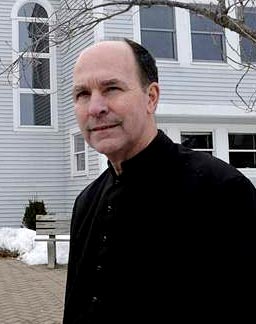
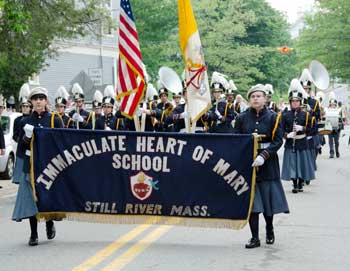 Immaculate Heart of Mary School, in the town of Harvard, about 25 miles northwest of Boston, also withdrew from the parade last year, when it appeared that a gay rights group would be allowed to join the march. The rights group did not walk in the end.
Immaculate Heart of Mary School, in the town of Harvard, about 25 miles northwest of Boston, also withdrew from the parade last year, when it appeared that a gay rights group would be allowed to join the march. The rights group did not walk in the end.

